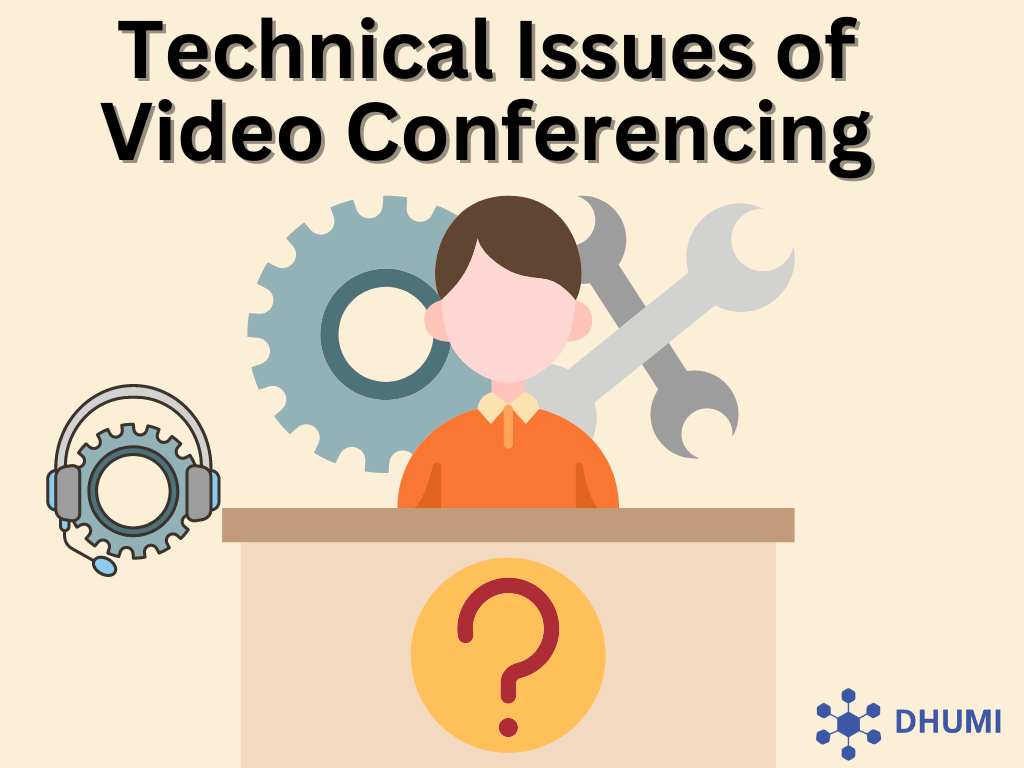
Sales Meeting: A Guide to Optimizing Your Successful Sales Meetings
To make sure their sales teams are on track and hitting their targets, all businesses need to have regular, productive sales meetings. Companies may get ahead of the competition and strengthen their client connections by holding sales meetings on a regular basis.
This article will give a detailed approach to holding productive sales meetings, including everything from planning to execution. A company's sales performance and team cohesion are both dependent on how well sales meetings are run.
Setting objectives for sales meetings
Holding regular sales meetings is a must for every company. They allow for the exploration of core goals and strategies, the generation of fresh ideas, and the formulation of concrete plans for increasing effectiveness and output. Setting goals ahead of time and keeping the conversation focused on what matters most to the team may help make each sales meeting more effective. Everyone should be aware of the meeting's purpose and feel welcome to provide their thoughts and opinions.
Setting achievable goals and strict due dates for projects is essential for their success. It's important to keep tabs on your progress and readjust your goals as necessary. Results from each meeting should be assessed afterward to see whether objectives were reached and if any adjustments need to be made. If you stick to these guidelines, sales meetings may be an efficient tool for making your firm a success.
Preparing an agenda for sales meetings
A successful sales team knows the value of productive sales meetings. Meeting attendees will be better prepared for what will be discussed if the meeting's purpose and agenda are established in advance. To keep the meeting on track, it's helpful to provide a time limit for each item on the agenda.
To ensure that guests have access to all of the relevant information, it is crucial to put together materials in advance. It's vital that all attendees feel comfortable sharing their thoughts and ideas throughout the meeting.
It's crucial to check in on assignments and objectives to make sure everyone is doing their part. Meetings are more productive when they close with a brief review of key points and the development of next steps. Having the meeting managed by technology may save time and make sure everyone is on the same page. It's also crucial to take notes and record the meeting's proceedings so that everyone may go back to them afterwards.
Selecting the right venue for sales meetings
It's not easy to plan and execute a productive sales meeting. Finding a suitable location for your sales meeting requires some advance planning to guarantee everything goes off without a hitch. Think about the venue's proximity to your attendees, ease of access, and availability, and make sure it has the essentials like internet, AV equipment, and food service options. The cost of the venue should be established, and then suitable alternatives should be investigated.
Check out the feedback of previous clients to see whether the location is a good fit for your event. Make sure the venue is up to par by requesting a tour if at all feasible. Next, call the venue to make sure that it is available on the day and time you choose.
If you follow these suggestions, your sales meeting should go off without a hitch. You can guarantee the success of your meeting with just a little bit of homework and planning in advance.
Inviting the right people to sales meetings
The success of each company depends on the quality of its sales meetings. There are several factors that contribute to a sales meeting's success, such as keeping everyone on track, progressing towards the objective, and making sure all opinions are heard. To help you have a productive sales meeting, here are some suggestions:
Getting the right people together is the key to a productive meeting. To make sure everyone can participate and provide their two cents, bring key decision makers, influencers, and technical experts to the table. Those who are participating remotely should, in addition, be provided with a backup plan.
After inviting the appropriate participants, the next step is to create a meeting agenda and distribute it in advance. This will guarantee that all attendees are aware of the meeting's goals and are well prepared. Meetings should also begin promptly and end precisely when they are scheduled to.
Getting everyone involved is key to making the event a success. Let everyone share their thoughts, and make use of visual aids to drive home your ideas.
Conducting effective pre-meeting research
Customer connections and effective answers to their problems may be strengthened via sales meetings. Successful sales meetings are the result of careful planning and preparation in advance.
It's crucial to learn about the client's buying habits before you meet with them. You can better cater to their wants if you have some idea of the items and services they have purchased in the past. The needs and wants of the client must also be determined. If you know what the client is hoping to accomplish, you can craft a presentation that highlights the advantages of your solution.
It's crucial to be aware of the state of the industry and any emerging trends that may influence a customer's buying choice. You may get an advantage over the competition by studying the goods and services they provide and how they are positioned in the market. In addition, it is crucial to compile a list of questions to ask the client in order to fully grasp their needs.
The success of your sales meetings may be guaranteed if you follow these guidelines and develop a strategy.
Structuring the content of sales meetings
Every thriving company relies heavily on regular sales meetings to keep everyone on the same page and working toward the same goals. But there are a few essentials to remember when it comes to arranging productive sales meetings.
Setting clear objectives and establishing the meeting's purpose is the first step in organizing a productive sales meeting. After deciding what to talk about and who needs to be there, you should draft a meeting agenda to keep everyone on the same page. All attendees should come to the meeting well prepared, and facilitators should have the resources they need to keep things moving along efficiently.
It is equally crucial to practice active listening throughout the meeting so that everyone's thoughts and views are taken into account. Furthermore, keep an eye on the clock to make sure all of your points are covered without going over. Summarizing the meeting's major points and choices and following up with attendees to ensure timely completion of action items are both crucial after a meeting has concluded.
Keeping sales meetings on track and on time
Having a productive sales meeting is crucial to reaching your targets. You can increase the effectiveness of your sales meetings by planning ahead and sticking to a few basic rules.
The first step in organizing a productive sales meeting is settling on an appropriate amount of time to meet. Participants should also be given a clear agenda outlining the subjects that will be covered throughout the meeting. This helps keep the conversation on course.
Meetings should begin promptly, and attendees should be encouraged to be on time. Discussion during the meeting ought to stick to the items on the agenda and not wander off into other areas. It's also crucial to talk clearly and concisely, present pertinent information, and promote involvement from all participants.
Encourage participation and debate by asking for input from the group as needed. Conclude the meeting by summarizing the main points and conclusions discussed and delegating any remaining tasks to the attendees.
You may hold a productive sales meeting that contributes to your company's objectives if you adhere to these suggestions.
Encouraging participation and engagement in sales meetings
There is no universal formula for running a successful sales meeting. You may, nonetheless, take measures to guarantee a productive gathering. Use group activities, like role-playing games, to keep the meeting interesting and productive. It's a terrific approach to breaking the ice and hearing stories from everyone involved.
Using questions to stimulate conversation may help keep everyone on track and engaged. Set aside some time to discuss potential approaches, and be sure to thank everybody for their input. Maintaining interest requires setting reasonable expectations and maybe rewarding people for their efforts. Use these guidelines to run effective and efficient sales meetings.
Following up after sales meetings
It's crucial that you come prepared for sales meetings since they may make or break a contract. Get to know the customer's wants and objectives ahead of time so you can better serve them during the meeting. As a result, you'll be better equipped to test for the customer's needs and provide tailored solutions. Make sure everyone is on the same page by asking open-ended questions throughout the meeting and addressing the customer's questions in depth.
Make sure the client has all the information they need and keeps tabs on their actions after the meeting has ended. Furthermore, be sure you provide the client with the help and direction they need to implement the strategies established in the meeting. Conclude the meeting by summarizing its goals and results and deciding on next steps. If you follow these steps, you'll have a far better chance of closing the transaction during your sales meeting.
Evaluating the success of sales meetings
Successful companies often have sales meetings. When executed properly, they may increase morale, aid in goal-setting, and encourage teamwork. It is essential, however, that these gatherings remain well-structured and focused and that everyone present gets a chance to speak. Use this formula for productive sales conferences:
First, make sure everyone is on the same page and has a copy of the meeting's agenda. In this manner, anyone can plan accordingly. Each meeting should be well organized and focused on the agenda in order to achieve its stated purpose. Give everyone a chance to share their thoughts, and use the input you collect to shape future sales meetings.
Contacting participants after the meeting to go over the agenda and progress made is a good idea. Maintain a record of each meeting's accomplishments and a record of the next meeting's objectives. Consider how productive your meetings have been and make changes as needed.
By following these tips, you’ll be sure to have successful sales meetings.
How often should sales meetings be held?
Successful sales teams consistently have sales meetings. Team members are able to brainstorm new ideas and review the status of ongoing and future initiatives during these gatherings. Having a well-organized meeting format that works for the team is crucial for productive sales meetings.
The meetings should be held at the same time and location at regular intervals.
It is crucial to have a predetermined agenda when organizing a sales meeting. This will help the meeting operate well and cover all the essential ground. Time should be set aside for team members to give comments and ideas, as well as time for team building activities in addition to reviewing progress and plans. Having a leader or facilitator for the meeting is also helpful for keeping everyone on track and paying attention.
Meetings should always conclude with a brief review of the day's events and an outline of future steps.
What is the ideal length for a sales meeting?
Every company's sales process relies heavily on sales meetings. Having a solid strategy in place is crucial for achieving your goals. With the following guidelines, you can organize a fruitful and effective sales meeting.
Establishing a time limit is the first step in organizing a productive sales meeting. The optimal duration of a sales meeting is 60 minutes. This ensures that the meeting doesn't get off topic. The next step is to draft a meeting agenda that everyone can follow. You may use this to keep track of your thoughts and ensure that everything of significance is covered.
After the agenda is set, it's important to go through the meeting's goals and hear input from everyone present. This will promote open communication and guarantee that everyone is on the same page. Set aside some time for people to ask questions and share their thoughts throughout the meeting.
This will guarantee that there is complete agreement on the results and next steps. Lastly, have everyone provide their thoughts about the meeting. By doing so, you may better prepare for the upcoming meeting and eliminate any problems that arose from the last one.
How do you ensure that attendees are prepared for a sales meeting?
Having a productive sales meeting is crucial for any company's success. You need an agenda and a timetable to make sure your meeting goes smoothly. Sending out an agenda ahead of time ensures that everyone is on the same page and prepared to present. Having people bring questions and suggestions to the meeting is also helpful.
After the meeting has begun, the participants should refer to the list of topics to ensure that the talk stays on track. To get the greatest results, it is important to encourage teamwork and creative thinking. Time and any tangential discussions should be closely monitored throughout the meeting to ensure that it stays on track. Plan out what will be accomplished during the meeting and what will need to be done thereafter.
Lastly, following the meeting, check in with the participants to see how things went.
If you follow these guidelines, your sales meeting is guaranteed to be productive. The success of a meeting depends on everyone involved being on the same page; therefore, it's important to provide an agenda in advance, insist that participants arrive ready to participate, and establish clear objectives and next steps.
What are some common mistakes to avoid in sales meetings?
- Business strategies that include sales meetings are worth considering. There are several fundamentals to remember if you want your sales meetings to be productive.
- The first is to plan ahead as much as possible. A meeting without an agenda is certain to fail and provide no results.
- It's crucial that everyone in the meeting pay attention and listen to one another. Successful meetings need participants to avoid distractions and keep the discussion on course. Be careful to get any clarification you need and provide suggestions.
- Any things that were discussed at the meeting that need further action should be followed up on thereafter. Send out a summary of the meeting, and be sure to provide useful feedback to everyone who attended. In this manner, everyone can take something useful away from the gathering.
If you follow these guidelines, your sales meetings will be productive and fruitful. Plan ahead, communicate clearly, listen intently, maintain concentration, follow up, and provide suggestions.
How can you measure the effectiveness of a sales meeting?
Meeting with potential customers is a crucial step in making a transaction. When executed properly, they may serve as a potent engine for progress. Yet, if not organized and handled well, they might be counterproductive. Setting concrete, attainable objectives in front of a sales meeting is crucial to its success. Once the meeting is over, you can go back and see how productive it was.
When executed properly, they may serve as a potent engine for progress. Yet, if not organized and handled well, they might be counterproductive. Setting concrete, attainable objectives in front of a sales meeting is crucial to its success. You should also consider the presentation's influence on the audience and how well it was received. The success of a sales meeting may be evaluated in part by tracking the outcomes of any follow-up efforts.
Participants' interest and energy levels should also be evaluated. You may gauge the meeting's success by keeping tabs on the number of leads it generates. Assessing the level of interaction among attendees can also reveal how successful the meeting was. Meeting success may also be determined by comparing the meeting's result to the predetermined objectives.
The success of a sales meeting may also be gauged by asking how satisfied the client was with the meeting overall. Finally, you may learn from the sales meeting by tracking how much time was spent on each agenda item and evaluating the gathered data.





